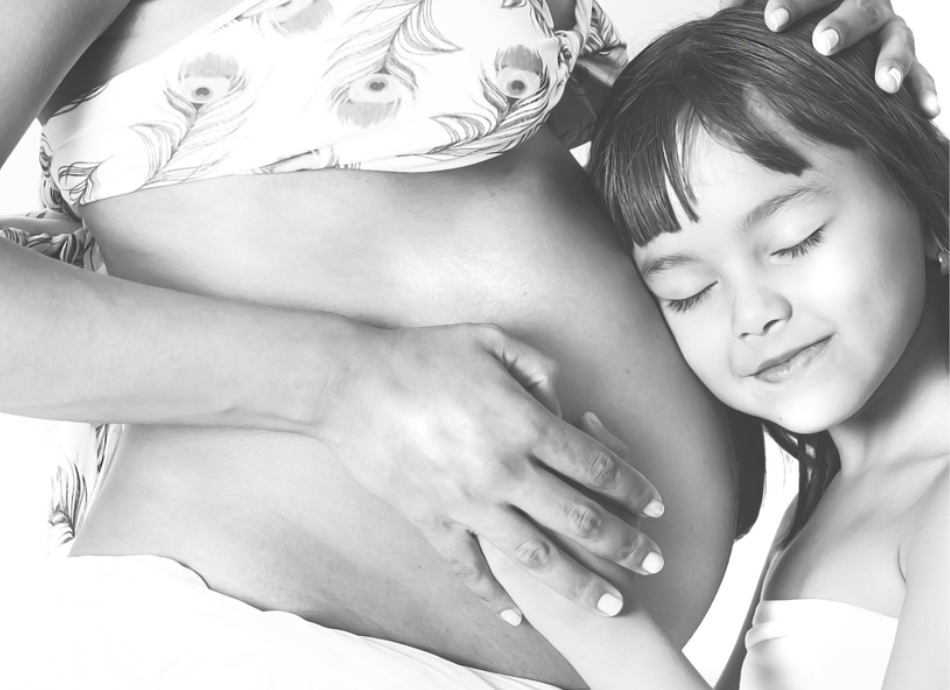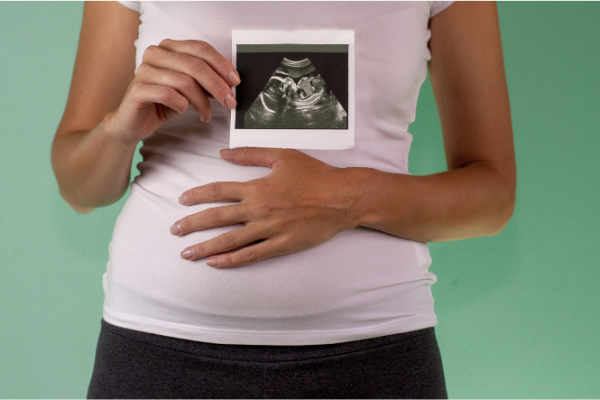Wishing everyone happy holidays and a joyful New Year from the Healthify team. Don't forget to Slip, Slop, Slap and Wrap!
Pregnancy screening tests and checks
Key points about pregnancy screening tests and checks
- During pregnancy, you will be offered screening tests to check that you and your baby are healthy.
- Screening tests can provide you with information about your baby’s growth and development, and how your body is coping with the physical changes and demands of pregnancy.
- They can also tell you whether you or your baby are more likely to have a medical condition.

Screening tests and checks you may be offered include:
- the first antenatal blood test
- urine screening
- ultrasound scans
- diabetes tests
- antenatal screening for Down syndrome and other conditions
- STI testing
- family violence risk assessment.
These screening tests are your choice. Your midwife (or specialist doctor) will give you information and support to help you to decide whether to have screening or not.
At one of your first pregnancy check-up visits, your lead maternity carer (LMC) will give you a form to take to your local medical laboratory so that you can have your blood tested – ideally by 9 weeks of pregnancy.
The first antenatal blood test is recommended to protect your health and the health of your baby and family/whānau. It identifies unsuspected conditions or diseases as soon as possible in your pregnancy so that treatment can be offered.
This blood test is free and from one sample it checks:
- your blood group and rhesus factor
- if there are any antibodies that may be harmful to your baby
- your full blood count
- if you are immune to rubella
- if you are a hepatitis B carrier
- if you have syphilis
- if you have HIV
- if you have diabetes or are at risk of developing diabetes.
Read more about antenatal blood tests.
A urine (pee) sample is recommended at the time of your first blood test to check for bacteria. During pregnancy you can have a urinary tract infection without symptoms. This is easily treated with antibiotics.
Urine is also checked at antenatal visits using a simple dipstick test to detect if your urine contains:
- protein – this may indicate early pre-eclampsia (a rare complication of pregnancy)
- sugar (glucose) – this is an initial check for diabetes.
Ultrasound screening is offered for a variety of reasons, such as to determine when your baby is due, to see if you’re expecting twins (or more!) and to check if your baby is developing normally. There could be other reasons to have an ultrasound scan as your pregnancy progresses, such as monitoring the growth of your baby and the position of the placenta.
Image credit: Canva
The four most common stages to have a scan are:
| Known as | Stage |
| Dating scan | It is no longer usual to have a scan to work out how many weeks pregnant you are and your due date. However, a dating scan may be requested if you are unsure of the date of your last normal period. |
| Nuchal translucency scan | This is part of first trimester combined screening for Down syndrome and other conditions (read more below). If you decide to go ahead with this optional screening test, you will be offered a scan between 11 weeks 2 days and 13 weeks 6 days (ideally at 12 weeks). This is the only time that this scan can be performed. It is recommended in all pregnancies, regardless of whether you wish to have Down Syndrome Screening, to check the number of babies and that a heartbeat is present. |
| Anatomy scan | At around 18–20 weeks gestation, parts of your baby’s body will be measured to check that they are growing as expected and to look for any problems. At this scan you might find out what sex your baby is – although you may prefer to wait until your baby is born. |
| Growth scans | If your maternity care provider is concerned about your baby’s growth in the third trimester, then additional ultrasound scans at this stage may be recommended. |
Most women will have at least 1 pregnancy ultrasound, either in the very early stages of their pregnancy or at around 20 weeks of gestation. Pregnancy ultrasound is non-invasive and is considered to be safe for both you and your developing baby.
Read more about pregnancy ultrasound.
Diabetes is when you have too much glucose (sugar) in your blood, and it can make you sick and affect your baby’s growth. Diabetes screening is to check whether you already have diabetes or if you are at risk of developing diabetes while you are pregnant (gestational diabetes).
It is recommended that diabetes screening is done twice:
- As part of the first antenatal blood test (or any time up until you are 20 weeks pregnant).
- Again when you are 24–28 weeks pregnant.
There are three blood tests that can help you find out if you have, or are at risk of getting, diabetes during your pregnancy. The three tests are:
- HbA1c
- oral glucose challenge test (OGCT)
- oral glucose tolerance test (OGTT).
For more information on these tests see testing for diabetes in pregnancy.(external link)
If you do already have diabetes, or you develop diabetes in pregnancy, you will be offered information, treatment and support, including help to eat well and stay active.
There are 3 screening options, for the commonest genetic disorders, available for women in Aotearoa New Zealand who are less than 20 weeks pregnant. You should discuss with your GP or LMC if you want to have a test, which is optional.
First trimester combined screening
This is available if you are 11–14 weeks pregnant. It combines the results of a blood test (MSS1) and a nuchal translucency ultrasound scan with other information, such as your age and weight, to give a risk result. The blood test is free, but you may have to pay a part-charge for the ultrasound.
Second trimester maternal serum screening
This is available if you are 14–20 weeks pregnant and combines the results of a blood test (MSS2) with other information, such as your age and weight, to give a risk result. This blood test is free.
NIPT (non-invasive prenatal testing)
This newer test can be done at any time in pregnancy from 10 weeks onwards. It is a single blood test and currently you have to pay the full cost. It is more accurate than the other tests, although it is still a screening test. Read more about NIPT.
What do my results mean?
A low risk screening result cannot guarantee that your baby is healthy, for example some other conditions (eg, spina bifida) require diagnostic ultrasound.
A high risk screening result doesn't mean that your baby has a health issue, and the majority of babies with high risk results will be healthy. If screening shows that there is an increased risk for a genetic condition (like Down syndrome, Trisomy 13, Trisomy 18 or Turners syndrome), NIPT, amniocentesis or chorionic villus sampling (CVS) are the options available for diagnostic testing if you want this. Read more about amniocentesis.
A sexually transmitted infection (STI) test is recommended because many STIs don’t have symptoms, so you may be unaware of them. If they are not diagnosed and treated they could complicate your pregnancy or create serious effects for either you or your baby.
Common STIs, including chlamydia and gonorrhoea, can be diagnosed using a sample collected using a vaginal swab, which you can take yourself. Yourmaternity care provider will provide you with information on how you can do this.
Read more about common STIs.
Pregnancy is a particularly at-risk time for women. Antenatal appointments have been identified as a unique window of opportunity for asking questions relating to family violence and offering support to women. Your midwife or LMC will ask you discreetly if you have any concerns relating to your personal safety and will support you to find help if it is required.
Read more about abuse and safety.
Confidentiality
All pregnancy test results are confidential. If you need any support, information or treatment, you will be referred to the appropriate healthcare professional and receive care that is professional, respectful and confidential.
Informed consent
If you have any questions after reading this article please ask your midwife, GP or specialist. Health New Zealand | Te Whatu Ora recommends that you have these tests as soon as possible after you know you are pregnant, because knowing whether you have these conditions can help keep you and your baby well.
Before having any tests you must have the opportunity to receive information about the tests and then make an informed decision as to whether or not you wish to have them. The decision to have these tests is yours. Your decision will be respected.
Read more about informed consent and the Code of Health and Disability Services Consumers’ Rights.(external link)
Pregnant women and babies need care and support during pregnancy as they're at greater risk of preventable diseases. Midwives and GP's support you and your baby and provide regular checks during pregnancy to ensure baby has the best protection available.
Video: Enrol with a midwife and enrol baby with a GP
Watch a video about enrolling yourself with a midwife and your baby with a healthcare provider. This video may take a few moments to load.
(Northland DHB, NZ, 2015)
Pregnancy and newborn screening(external link) Health New Zealand | Te Whatu Ora
Pregnancy and newborn screening(external link) National Screening Unit, NZ
Antenatal screening for Down Syndrome and other conditions(external link) National Screening Unit, NZ
The four most common stages to have an ultrasound(external link) EchoNorth Diagnostic Ultrasound, NZ
Apps
Resources
Pregnancy and parenting education for you and your whānau [PDF, 2 MB] Auckland DHB, NZ
Amniocentesis(external link) RANZCOG, NZ, 2021
Chorionic villus sampling(external link) RANZCOG, 2021
Prenatal screening for chromosomal and genetic conditions(external link) RANZCOG, Australia, 2017
HIV testing in pregnancy. Ministry of Health, NZ, 2008 English(external link), te Reo Māori(external link), Chinese (simplifed)(external link), Chinese (traditional)(external link), Hindi(external link), Korean(external link), Sāmoan(external link), Swahili(external link), Tongan(external link)
The role of the primary healthcare team in pregnancy care(external link) BPAC, NZ, 2019
Routine laboratory testing during pregnancy(external link) BPAC, NZ, 2011
Pregnancy and newborn screening(external link) National Screening Unit, NZ, 2014
See our page Ultrasound for healthcare providers
Credits: Healthify editorial team. Healthify is brought to you by Health Navigator Charitable Trust.
Reviewed by: Dr Janet Crofts, Obstetrician, Auckland
Last reviewed:
Page last updated:


